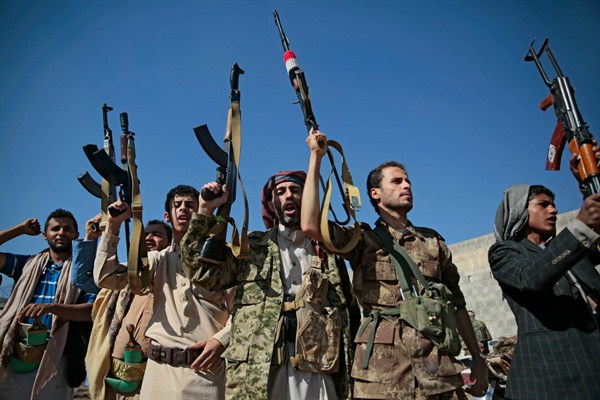Given the level of regional tensions, it is no surprise that Secretary of State Mike Pompeo’s recently concluded trip to the Middle East came with a busy itinerary. Amid questions about the abruptly announced U.S. pullout from Syria, an American response to the killing of Saudi journalist Jamal al-Khashoggi, the potential of brokering a resolution to the stalemated rift in the Gulf between Qatar and its neighbors, and the Trump administration’s hard-line stance against Iran, an often overshadowed policy dilemma has shifted toward center stage: the war in Yemen.
It has been more than four years since the Houthis, a Zaidi Shiite-led rebel group, took over Sanaa and forced Yemeni President Abdu Rabbu Mansour Hadi into exile, spurring Saudi Arabia to lead a military intervention to oust the Houthis and restore Hadi to power. Long-stagnant diplomacy to end the conflict, which has torn the already impoverished country apart and created what has been called the world’s worst humanitarian crisis, finally gave way to a breakthrough of sorts in December. After three rounds of unsuccessful talks in Switzerland and Kuwait, twin delegations affiliated with Houthi rebels and the internationally recognized government agreed to a tripartite deal in Sweden on Dec. 13 after over a week of consultations. The agreement struck in Stockholm may have been far from conclusive, but international diplomats cast it as a clear step in the right direction.
The deal has three key components. It aims to prevent a looming military offensive by the Saudi-led coalition on the Houthi-held port of Hodeida, a key outlet for humanitarian aid into Yemen. The parties also committed to jumpstart talks to de-escalate the fighting over Taiz, Yemen’s third-largest city, which remains under siege by the Houthis and their allies. And, in a prisoner exchange, both parties pledged to release thousands of detainees, some of whom had been held for more than four years.

